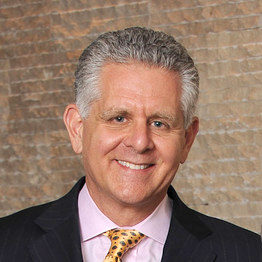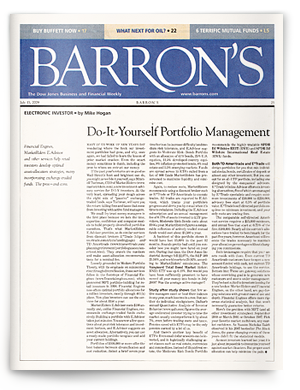Voices: Mitch Tuchman, on Why Advisers Can't Beat the Market
 Voices is an occasional column that allows wealth managers to address issues of interest to the advisory community. Mitch Tuchman is cofounder of retirement investment firm Rebalance in Palo Alto, Calif. He offers a counter argument to a previous Voices column about the advantages of active stock picking.
Voices is an occasional column that allows wealth managers to address issues of interest to the advisory community. Mitch Tuchman is cofounder of retirement investment firm Rebalance in Palo Alto, Calif. He offers a counter argument to a previous Voices column about the advantages of active stock picking.
As a former hedge-fund manager and someone who’s been doing this work for a very long time, I have trouble with the contention that the current market cycle—or any economic environment for that matter–is prime for active management or stock picking.
I think the idea that anyone could somehow consistently select a handful of the best performing stocks out of the entire S&P 1500 speaks volumes about how the active management game is played. Frankly, I think it shows a certain naiveté on the part of those who believe in its value.
We have an adviser on our firm’s Investment Committee, Professor Burton Malkiel, who has written that a blindfolded monkey has just as good a chance of outperforming the market as a manager. While it is true that a very select number of stock pickers can sometimes “beat the market,” in a given year, the data shows that the odds of delivering those results consistently, over a decade or more are nearly impossible.
Can active managers outperform the market for a quarter? Possibly. But getting a better risk-adjusted rate of return year in and year out–that’s not going to happen. You can try to justify it all you want with talk about the current economic climate being advantageous, but there’s no market cycle that favors picking stocks.
The trouble with every argument that you read about active versus passive management is that they’re one dimensional. You cannot add potential returns as an active manager without taking on active risk.
The first of those risks are fees, likely 2% paid to the active managers. If overall returns in global equity markets have been between 8% to 10% for decades, and 2% of that goes directly to a manager, the retail investor immediately loses out on a substantial amount of all available returns.
What’s more, if you make wholesale strategy changes between active and passive management, you’re talking about selling off a client’s funds to do so. The minute you do that, you’re realizing all the gains in your taxable accounts to play the active game. The tax implications of that tactical switch outside of a retirement account are major.
Finally, you have the risk of making the mistake of owning the wrong stocks and doing worse than an index, which happens half of the time in active strategies. There’s a recent Dalbar investment behavior report showing that from 2002 to 2012, the average equity mutual fund investor was up 4.3% while the S&P was up 8.2%. The reason: People are trying to chase returns, to pick stocks, rather than sticking with funds that track the market.
When you try to time the market, like some people are suggesting advisers do right now, you get in and out of it at the wrong time. Regardless of what people think about the economy or insight they claim to have about the market, switching tactically between active and passive management does little besides add cost and risk to your client portfolios.






